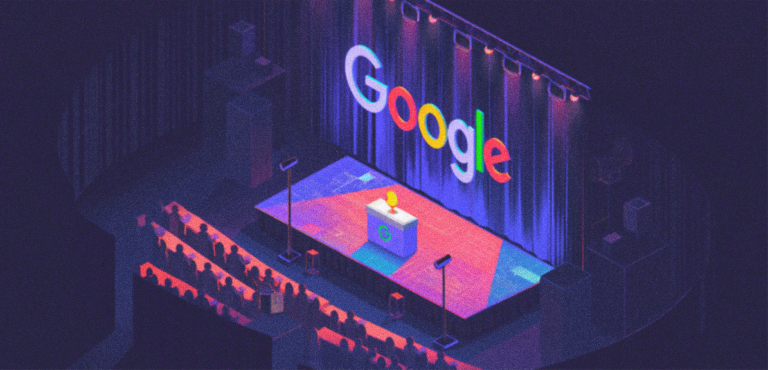
Google I/O 2024 Highlights That Stole the Show
Google’s annual developer conference, Google I/O, is eagerly awaited by technology enthusiasts and software developers worldwide. This year’s event, held on May 14th, 2024, did not disappoint the tech community’s sky-high anticipations. The tech giant unveiled a list of captivating software updates, artificial intelligence (AI) advancements, and upgrades to its Android operating system.
Here are the top highlights from the Google I/O 2024 conference:
Gemini gets a new upgrade
The landscape of large language models (LLMs) is quickly changing as new, strong competitors enter the field. To keep up with the growing competition, Google has introduced a range of new updates across the Gemini (previously known as Bard) family of models.
Google has rolled out a new language model, Gemini 1.5 Flash in response to the increasing need for more affordable and accessible AI options. The Gemini 1.5 Flash, a lighter and more economical version of the high-end Gemini Pro, is engineered for tasks demanding swift replies. It boasts multimodal reasoning capabilities, allowing it to simultaneously interpret and understand various types of data such as text, images, sound, and video. Furthermore, it introduces a context window capable of processing up to 1 million tokens (the amount of information an AI model can understand), a significant increase from the 128,000 tokens capacity seen in GPT-4. The Gemini 1.5 Flash is available for a public preview via Google’s AI studio and Vertex AI.
A sneak peek into Project Astra
During the event, the team from Google DeepMind showed off an early prototype of Project Astra, a new multimodal AI assistant designed to interact with users in real time through text, audio, or video. The innovative assistant allows individuals to utilize their smartphone cameras to inquire about virtually anything in their environment by simply pointing the camera at it. The video demo highlighted how users could ask Astra various questions about their immediate surroundings sequentially.
The demo also hinted at the integration of Astra with wearable technology, particularly Google Glass. For example, when a user looked at a diagram on a whiteboard through the glass camera, Gemini provided suggestions for improving system speed when asked. According to Google, some of Project Astra’s capabilities will be integrated into additional Google services, such as the Gemini app and its website, later this year. The goal of this integration is to provide AI interactions that are genuinely conversational and user-friendly, resulting in a more seamless and effective digital experience.
Enhanced photo searches with Gemini
Google has rolled out an update to its widely used Google Photos platform. The new feature, Ask Photos, utilizes the multimodal capabilities of the Gemini AI model to transform how users search and interact with their photos. This update lets users find a particular photo with a simple prompt. Users can also ask specific questions about their pictures. Then, the AI can investigate the photos’ details and topics, such as identifying different decorations or cake styles, to give a thorough response. When users correct a response or add additional details, the AI can retain this information for subsequent interactions, progressively enhancing its precision and relevance.
Ask Photos not only supports searches and offers access to a vast collection of photos but also helps users with specific tasks within the Google Photos app. For example, it can assist in selecting the top photos from a past trip and even create a custom video or slideshow using those images. While Google Photos could previously identify multiple faces through its object recognition technology, the integration of Gemini AI marks a significant milestone. Google plans to introduce Ask Photos gradually over the next few months. During this period, they will invite numerous users to experiment with the feature and provide feedback for enhancements.
AI meets Android
Google’s mobile platform, Android, will be getting various AI upgrades to enhance user experience. One of the most talked about additions is the enhancement of the Circle to Search feature, a popular AI-powered feature that allows users to perform web searches by simply circling, scribbling, or highlighting text or images on their screens. The latest upgrade to Circle to Search has enhanced its capabilities to handle more complex subjects, such as physics and mathematics. It will offer users detailed, step-by-step guidance for solving equations and tackling various other challenges.
Next-level scam protection with AI
Google is also introducing scam detection tools to Android devices. These tools will use Gemini Nano, the most compact AI model in the Gemini family, to identify and warn users about potential fraud in real time. When the AI recognizes potentially suspicious language within a conversation, it generates an on-screen alert, cautioning the user of a potential scam and offering options to either “Dismiss & continue” or “End call.”
This feature is on-device, ensuring user privacy, and users must opt-in to use it. It is available on the Google Pixel 8 Pro and Samsung S24 series, and more details will be shared later this year.
Distilled
These groundbreaking announcements from Google I/O 2024 have excitedly left the tech world buzzing. From the introduction of Gemini 1.5 Flash to integrating Gemini Nano’s scam detection capabilities on Android devices, the tech giant has once again pushed the boundaries of technology. As we eagerly await the arrival of Google I/O 2025, we can’t help but wonder what other game-changing unveils the tech juggernaut has in store.